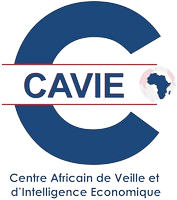[ACCI-CAVIE] Since its creation on August 3, 2015, the African Centre for Competitive Intelligence (ACCI) has played a crucial role in enhancing the competitiveness of African states. The ACCI relies on its core missions and undertakes concrete actions in several key areas.
Improving the business climate
The ACCI collects data from businesses, investors, and experts on a daily basis, legally and ethically, regarding investment and the obstacles to business in Africa. The Centre analyses this data to identify the main barriers to the competitiveness of African states. It shares its findings and recommendations with the relevant stakeholders through reports.
Providing recommendations
The ACCI regularly provides recommendations to African governments (upon request) based on its analyses. In some cases, these recommendations lead to legal and institutional reforms, investment incentive policies, administrative simplification measures, or the introduction of new public management practices. The Centre also organizes workshops and seminars to raise awareness among authorities about best practices in the business environment.
Supporting the implementation of reforms
The ACCI provides technical assistance to African governments in implementing business climate reforms since the discontinuation of the Doing Business report formerly published by the World Bank. Additionally, the Centre offers training programs for African civil servants on business climate-related issues. It has the ability to mobilize local or international experts and consultants to support African states in implementing dedicated reforms.
Concrete example: In its latest study on investment obstacles in Central Africa, the ACCI identified five main obstacles: corruption, bureaucracy, political instability, lack of infrastructure, and skills deficit. The ACCI then formulated recommendations to the governments of CEMAC member countries to address these obstacles.
Infrastructure development
Upon request, the ACCI conducts studies to identify priority infrastructure projects for Africa’s economic development. The Centre takes into account the needs of different African countries, sectoral economic potentials, and sustainable development goals. It can establish a list of priority projects in a specific country or sub-region and suggest financing mechanisms for their realization.
Mobilizing financing
The ACCI organizes events to mobilize public and private investors to fund development projects in Africa. One example is the African Qualified Business Partnership Fair (SAPAQ). Through this project, the Centre has created a platform for partnerships between African local authorities, international investors, and private sector companies. Through the SAPAQ, the ACCI explores innovative financing mechanisms such as public-private partnerships (PPPs) and crowdfunding for the benefit of decentralized authorities.
Project monitoring and evaluation
To assess the relevance of development partners entering African markets, the ACCI has established a project monitoring and evaluation system for infrastructure projects. This system measures the impact of projects on the economic and social development of African countries. Upon request, the Centre shares evaluation results and lessons learned with African governments and development partners.
Concrete example: In its latest study on priority infrastructure projects in decentralized local authorities in Africa for the period 2020-2030, the ACCI identified 100 specific priority projects in the fields of transportation, energy, water, health, and ICT.
Building human capital
Through the Joint Capacity Building Program for Public and Private Decision-Makers, created in collaboration with Knowdys Consulting Group and BVMW Afrika, the ACCI supports African governments in implementing bespoke vocational training programs to meet the needs of local businesses. The Centre identifies key skills necessary for the economic growth of the continent and develops training programs to address these specific needs. The next step is the creation of an online training platform to facilitate access to vocational and entrepreneurial training for young Africans.
Conclusion
With its legitimacy and ability to interact with stakeholders from the public, private, and associative sectors, the ACCI serves as an inspiration and driving force for the power strategies of African states that seek its assistance.
The Editorial Team


